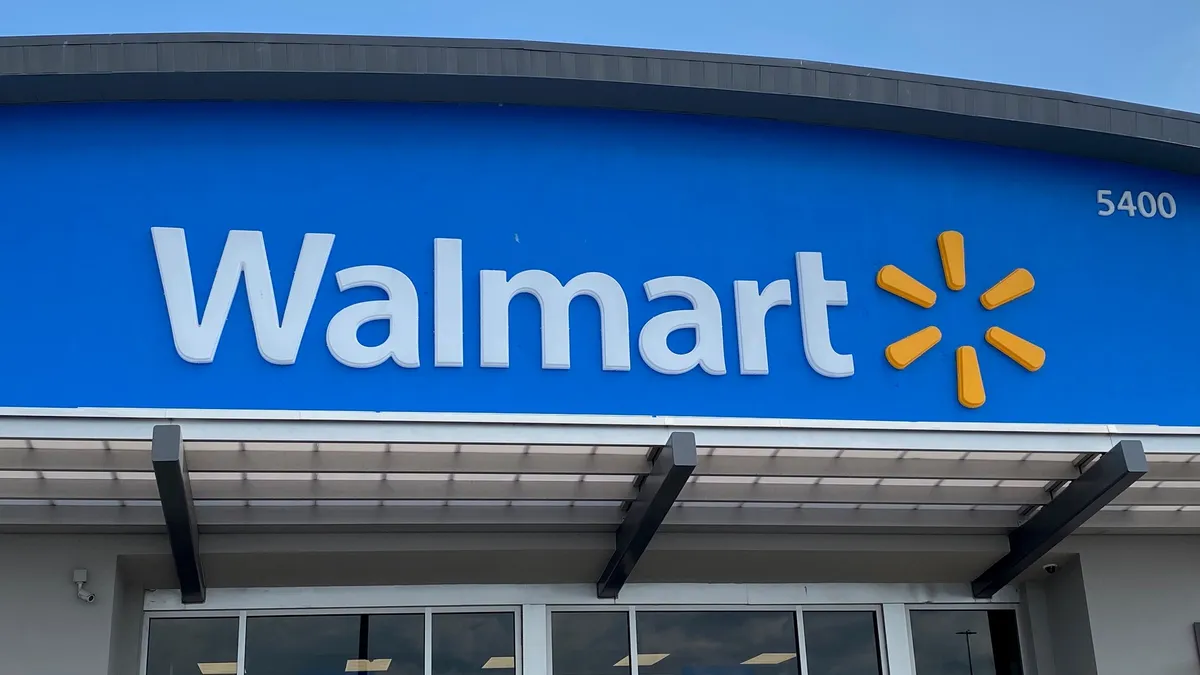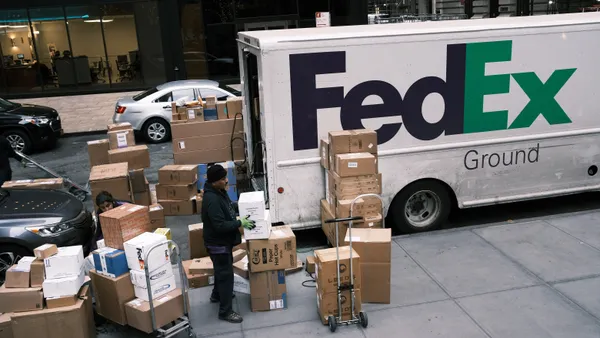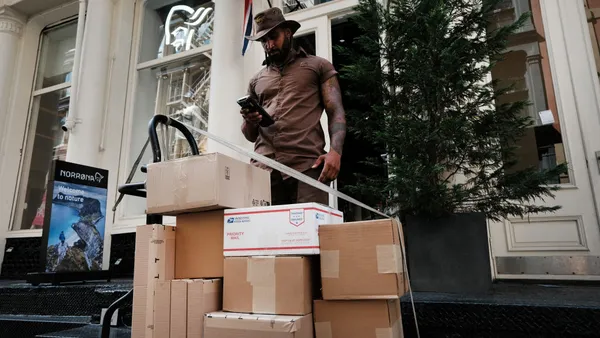Dive Brief:
- Walmart is adding parcel stations to its stores to make the last-mile delivery process faster and more efficient, the retailer announced Tuesday.
- These stations are "like a mini post office that receives and delivers packages," Jennifer McKeehan, SVP of transportation and delivery for Walmart U.S., said in a company blog post. Walmart plans to have more than 40 parcel stations in its stores by the end of the year, and some are already in operation.
- With the new capability, packages in Walmart fulfillment centers are transported to store parcel stations using the company's private fleet. They are then delivered to a customer's home through independent contractors on Walmart's Spark Driver platform or third-party carriers.
Walmart rolling out parcel stations in 9 states this year
Dive Insight:
Parcel stations give customers more time to place online orders on a wider assortment of products for next-day delivery, and they also make it easier and more efficient for employees to distribute orders from stores, McKeehan said.
"We plan to expand this capability to other locations next year as we better serve customers with speed, accuracy and reliability," McKeehan said.
The stations will also help Walmart build density into the last-mile delivery process, lowering the costs it incurs to reach end customers. Carriers increase density by delivering more packages per stop or per route, making more efficient use of transportation assets.
For Walmart, better density will help it bolster e-commerce margins as it looks to compete with Amazon's retooled fulfillment operations.
The retailer is already making headway in this area. CEO Doug McMillon said on a Q3 earnings call last week that Walmart has lowered store-to-home delivery costs by 15% as it works on "densifying the last mile."
To increase density, the company's Spark Driver network is making more deliveries from nearby stores while also delivering for other retailers through Walmart GoLocal. Walmart has increased the percentage of online orders fulfilled by stores by 800 basis points over the past year, while GoLocal is approaching 12 million deliveries made, McMillon said.
Reduced last-mile costs aren't coming at the expense of speed, according to McMillon. The retailer is also working to trim same-day delivery times for more than 80% of its stores, with speeds reaching as fast as 30 minutes in some instances.














